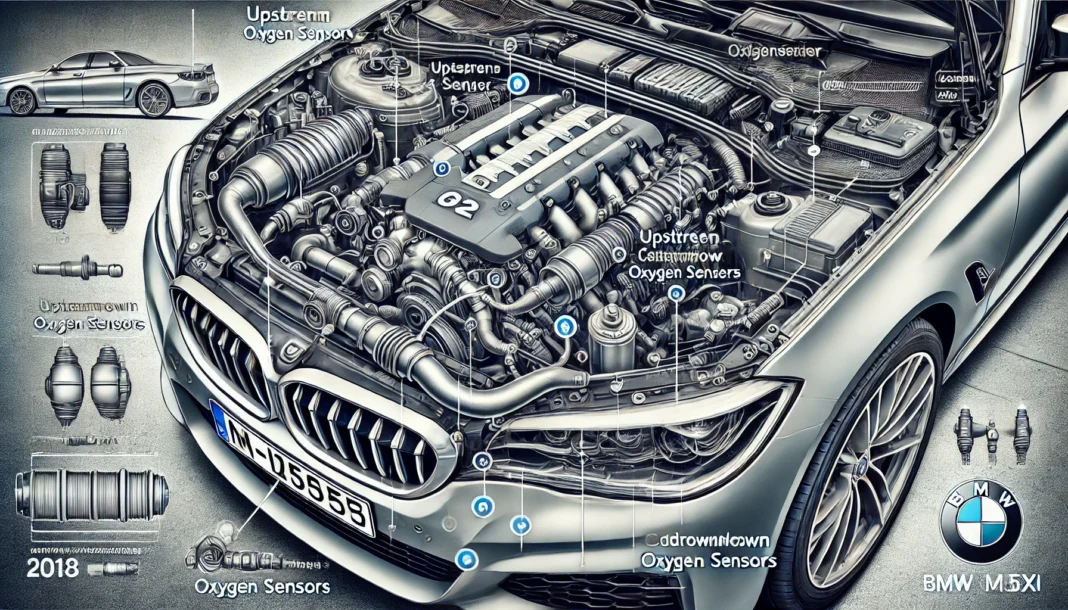Introduction to Location of O2 Sensors on a 2018 BMW G30 M550xi
I’ve spent 18 years under BMWs, and let me tell you – finding the location of O2 sensors on a 2018 BMW G30 M550xi isn’t as straightforward as you’d think. Let me map it out for you.
The Hidden Symphony of Sensors
Your M550xi runs a quartet of O2 sensors, each playing its own tune in the exhaust symphony. Let’s find these hidden musicians.
The Hard-to-Reach Front Pair
Bank 1 (Driver’s Side):
- Tucked behind the twin-scroll turbo
- Look for the titanium heat shield
- Follow the braided wiring loom
- You’ll spot the BMW-specific blue quick-connect
Bank 2 (Passenger’s Side):
- Mirror image position
- Hidden beneath turbo plumbing
- Protected by same style shield
- Identical connector setup
Secret Tip: These front sensors use a unique thread pitch – don’t force universal ones
The Sneaky Downstream Duo
Pre-Muffler Sensor:
- Located after first catalyst
- Above transmission tunnel
- Near the chassis brace
- Watch for heat wrap
Final Monitor:
- Just before resonator
- Below floor pan
- Easy to spot, hard to reach
- Look for aluminum shield
Why These Spots Matter
BMW’s engineers weren’t just playing hide and seek:
- Front sensors catch raw exhaust data
- Rear pair monitor cat efficiency
- Positions maximize heat protection
- Placement optimizes response time
Street Knowledge
What I’ve learned the hard way:
- Heat cycles weld them in place
- Factory connectors get brittle
- Threads love to seize
- Wiring routes are crucial
Tool Talk
Your weapon selection:
- 22mm slim-line sensor socket
- 3/8 extended swivel
- Anti-seize compound
- Wire brush set
- BMW-specific scan tool
Warning Signs
When sensors go south:
- Random power dips
- Cold start misfires
- Adaptive values maxing out
- Fuel trim swings
Pro Installation Tips
Before you dive in:
- Mark sensor positions
- Photo document everything
- Clean mounting areas twice
- Use copper anti-seize
Cost Reality Check
Breaking down expenses:
- OEM sensors: £190-240 each
- Labor: 3.5 hours typical
- Special tools needed
- Total hit: £850-1100
Maintenance Gold
Keep them alive longer:
- Run top-tier fuel
- Regular oil changes
- Clean air filters
- Log all codes
Tech Secrets
Things they don’t teach:
- Sensors age in pairs
- Each bank needs coding
- Heat cycling affects life
- Wiring matters more than sensors
Emergency Fixes
When you’re stuck:
- Temporary bypasses exist
- Quick connector repairs
- Heat shield mods
- Coding workarounds
Myth Busting
Let’s clear the air:
- Cheaper isn’t better
- Universal sensors fail fast
- “Delete kits” kill performance
- Basic scanners aren’t enough
Common Questions
Why do these fail? Usually heat damage or contamination.
OEM or aftermarket? OEM – the price difference isn’t worth the hassle.
DIY possible? With proper tools and patience, yes.
Prevention tips? Regular checks and premium fuel.
Real Talk
The location of O2 sensors on a 2018 BMW G30 M550xi might seem like a maze, but it’s designed with purpose. Each sensor plays a crucial role in keeping your Bavarian beast running right.
Remember: These aren’t just parts. They’re the eyes and ears of your engine management system.
Got BMW questions? Drop them below. I’ve probably fixed it before.


